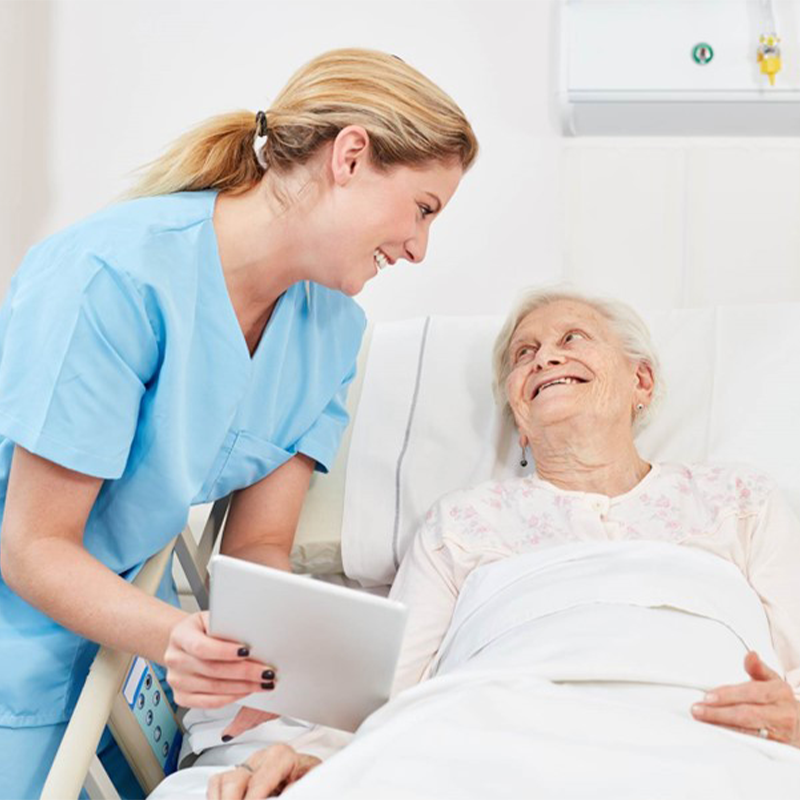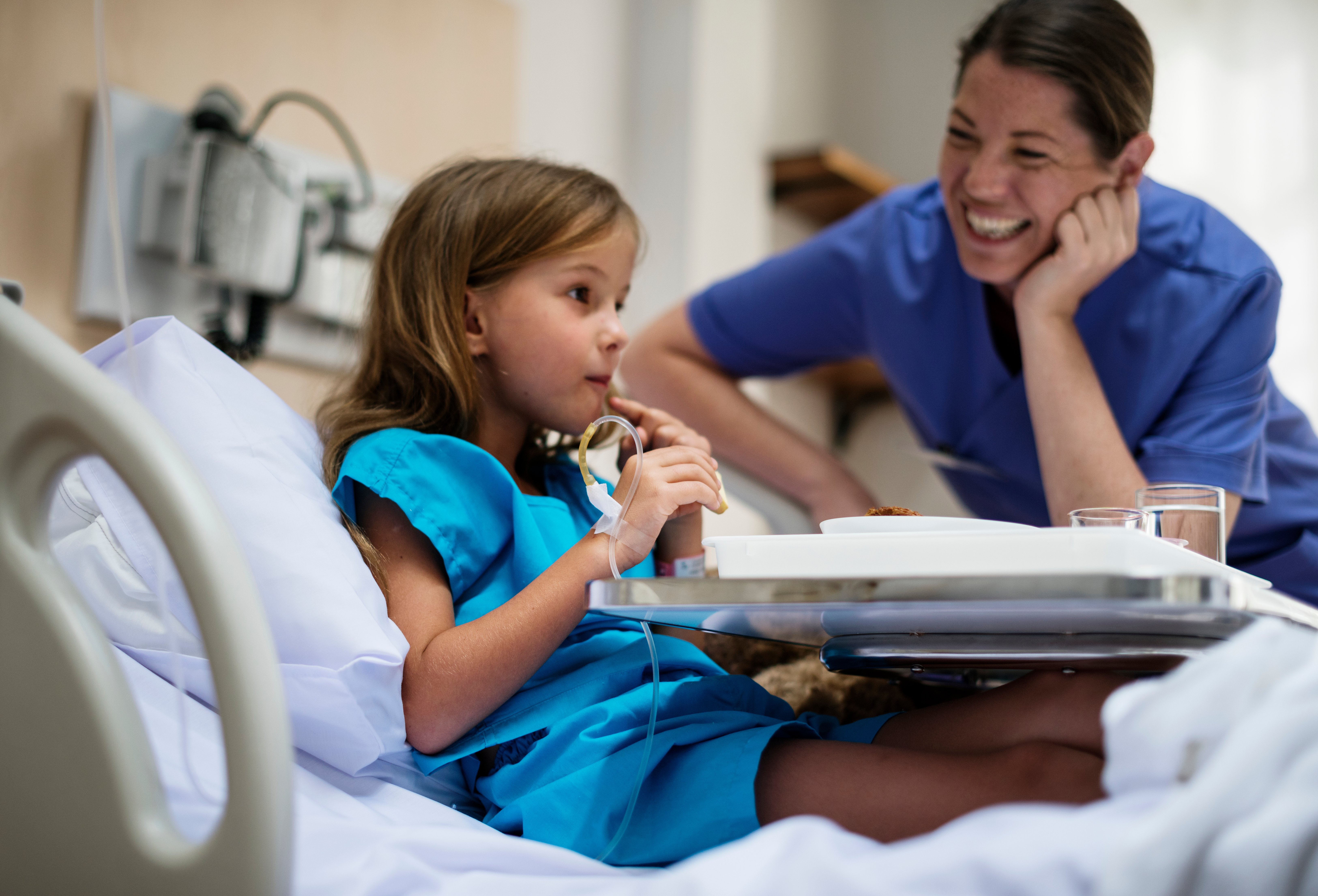8th November 2022
It’s worrying when a patient doesn’t eat their meal because they’re not getting the nutrition they need to get better. But it’s also a significant financial concern.
According to the NHS Hospital Food Review, food waste in UK healthcare costs £230 million annually - a staggering 39% of the total food budget. Food in the bin is valuable budget thrown away. Budget that’s badly needed elsewhere.
While current food and energy price increases are continuing to squeeze hospital caterers and offering the potential to impact patient wellbeing, putting measures in place to minimise food waste will help mitigate those cost impacts, alongside supporting NHS 2030 targets.
The scale of the problem
While many hospitals record levels of food waste under 10%, the true picture is that over 60% is actually being wasted. Or a worrying 22p of every meal.
What can be done?
The Independent Review of NHS Hospital Food in England, published in October 2020, highlighted the role of technology in reducing food waste in our hospitals, alongside driving efficiencies across the whole catering process, from menu planning and ingredient purchase to stock management.
The Civica Catering team has put together some top tips for using technology to reduce food waste and help mitigate rising food costs.
1. Optimise stock and menu management
With so many perishable items involved in maintaining healthy food service, it’s important that hospital caterers keep minimal stock but can easily access a clear snapshot at any time. Our Civica Catering Management (formerly Saffron) software offers dynamic stock management, pulling in information from sales and production to provide real-time, accurate stock data.
It’s important to ensure that everybody within the organisation is buying stock from approved suppliers, where volumes and discounts have been negotiated. Automating and simplifying the process can save up to 70% of the associated costs of a paper-based system. With Civica’s Purchase to Pay (P2P) module, caterers can manage stock levels and recipe costings more easily, automatically raise and place purchase orders and trade with any supplier, whatever their size – all through one, simple to use platform.
Menu management can mean making substitutions and Civica Catering Management makes it easier to switch to cheaper or more readily available options, or switch from scarce products if they become more expensive. Civica P2P manages this process and highlights variances, enabling organisations to act upon increases and impacts in a timely manner.
However, while keeping an eye on profitability, it’s important to understand the risk substitutions can pose to patients and also to compliance with FIR and Natasha’s Law. Civica Catering Management instantly shows the impact that changes have on cost, allergens, nutrition and carbon footprint – to the caterer and also to patient.
2. Let patients choose their own meals
Digital meal ordering means taking patient meal orders via a tablet or other device instead of written instructions. It’s a more efficient way to streamline the ordering process and reduces the risk of error.
At Civica, we understand the important benefits this can deliver and have created Civica Bedside to take digital meal ordering to the next level. With human interaction between the ward host and patient to ensure accuracy and efficiency, this prevents delays and improves the patient experience. It also supports the objective of reducing food waste.
If 50% of those who order soup prefer not to eat a bread roll, then traditionally that could leave hundreds of bread rolls wasted each week across a large trust. Civica Bedside allows the host to input the information and prevent wastage, without increasing the burden on busy ward staff or catering teams.
3. Reduce time between ordering and meal service
Electronic meal ordering allows patients to choose their meal much closer to the time they will eat it, so they’re less likely to change their mind about what they want or be served something they really don’t fancy eating. It also reduces the likelihood of food arriving on a ward after the patient has left.
Digital meal ordering systems, like Civica Bedside, drive a number of benefits including safe ordering and mapping to patients’ care plans, better tailoring of meals to patients’ needs, as well as reducing time between ordering and meal service through electronic ordering.
4. Map meals to patients and not to beds
Moving beds can leave a patient with a delayed or unsuitable meal, impacting their nutrition and even putting them at risk. That’s why we integrate Civica Bedside with a hospital’s patient admission system (PAS). The ward host uses a tablet device to input preferences for specific patients, rather than beds. Easy to navigate and fully tailored to the individual, this system allows patients to choose from a specific list of meals that are suitable to them, and ensures they receive their chosen meal even if they are moved.
5. Optimise food availability for staff
Shockingly 84% of NHS staff don’t have access to a hot food service when working a 12-hour night shift. The Report of the Independent Review of NHS Hospital Food and the BMA Fatigue and Facilities Charter have called out the need for change.
Making the 24/7 provision of hot, affordable and nutritious food a reality for NHS staff will eradicate hunger, benefit the physical and mental wellbeing of staff and in turn improve the quality of patient care. It will also open-up further opportunities for creating food waste.
Civica has developed mobile-friendly solutions to let staff know what food is available in advance, complete with nutritional and allergen information, and to pre-order and pay for it too. This ensures caterers can plan ahead and minimise food waste, while staff can access food without needing means of payment on them.
6. Track improvements
Civica Catering Management offers an all-encompassing view of operations to drive efficiency, support compliance and enhance visibility. It accurately measures and records waste and can report on this in terms of a percentage of revenue, percentage of consumption or total CO2 value of waste, linked to CO2 values for individual ingredients and menu items. This helps hospital caterers to take the right steps to minimise the amount of food wasted.
Start the conversation
Ready to discuss how we could help you better manage catering and meal ordering in your organisation?
Get ready for new food waste legislation with Civica and NHS England
Join Civica and Tim Radcliffe, Net Zero Food Programme Manager for NHS England to learn how new food waste legislation impacts you and what you can do to meet it.
Watch now
Civica Bedside
A meal ordering app designed to provide patients with a more interactive and personal experience.
Read more